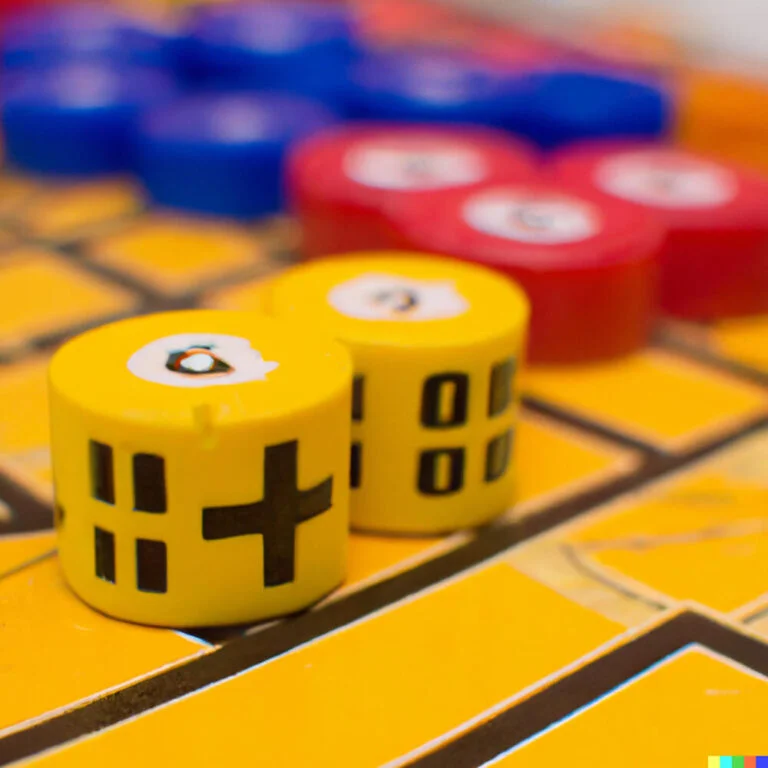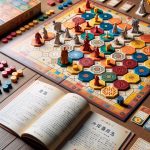The world of board games has a rich history, with traditional games from different cultures holding a special place in the hearts of enthusiasts. In this article, we will delve into the fascinating world of classic Japanese board games, exploring their origins, influence, and enduring appeal. From the strategy and skill involved to their significance in modern society, classic Japanese board games offer a unique gaming experience that has captivated players for generations.
Traditional Japanese board games have played an integral role in the country’s culture for centuries, reflecting the values and customs of its people. These games showcase the artistry and complexity that define Japan’s approach to gaming, making them an intriguing subject for exploration. As we take a closer look at these classic board games, we will discover how they have stood the test of time and continue to hold relevance in today’s world.
By examining the influence of Japanese culture on classic board games and comparing them to their Western counterparts, we gain valuable insight into the diversity and depth of gaming traditions around the world. From strategy-based gameplay to beautiful game designs, classic Japanese board games offer a wealth of experiences that have garnered admiration from players worldwide. Join us as we embark on a journey through the captivating realm of traditional Japanese board games.
A Brief Overview of Traditional Japanese Board Games
Traditional Japanese board games have a rich and fascinating history that has been an integral part of Japanese culture for centuries. The practice of playing board games dates back to ancient times, with some of these classic games still being enjoyed today. These traditional Japanese board games provide insight into the values, customs, and mindset of the Japanese people throughout history.
One of the most popular and enduring classic Japanese board games is Go, also known as igo in Japan. Go is a strategy game that originated in China more than 2,500 years ago and was later introduced to Japan, where it became deeply ingrained in the culture. Another well-known traditional game is Shogi, which is a form of chess that involves capturing your opponent’s pieces to achieve victory.
The traditional Japanese board games reflect the emphasis on strategy, skill, patience, and intellect within Japanese culture. Players are required to think strategically and anticipate their opponent’s moves in order to succeed in these classic games. This reflects the broader cultural values of discipline, perseverance, and strategic thinking that are highly regarded in traditional Japanese society.
To gain a deeper understanding and appreciation for these classic Japanese board games, it is essential to examine their historical origins and cultural significance. By delving into the world of these traditional games, one can uncover valuable insights into the enduring appeal and timeless nature of classic Japanese board games.
| Board Game | Origin |
|---|---|
| Go (Igo) | China (more than 2,500 years ago), later introduced to Japan |
| Shogi (Japanese chess) | Japan |
The Influence of Japanese Culture on Classic Board Games
Classic Japanese board games are deeply intertwined with the rich and diverse culture of Japan. The traditional values, customs, and beliefs of the Japanese people have greatly influenced the development and evolution of these timeless games. One of the key aspects of Japanese culture that has left a lasting impact on classic board games is the concept of harmony and balance.
In many classic Japanese board games, players are encouraged to seek harmony and balance in their strategies, as well as in their interactions with opponents. This emphasis on harmony reflects the traditional Japanese value of maintaining peace and equilibrium in all aspects of life.
Another significant influence of Japanese culture on classic board games is the importance placed on respect and humility. Many traditional Japanese board games emphasize respect for one’s opponent, as well as the importance of displaying humility in both victory and defeat. This aspect of Japanese culture has shaped the etiquette and conduct observed during gameplay, making classic Japanese board games not only a test of skill and strategy but also a reflection of an individual’s character.
Furthermore, classic Japanese board games often incorporate elements from nature, folklore, and history, reflecting the deep connection that the Japanese people have with their surroundings. Whether it be through game pieces inspired by animals or landscape motifs depicted on game boards, classic Japanese board games serve as a way to celebrate and honor Japan’s natural beauty and cultural heritage.
The integration of these cultural elements into gameplay adds depth and meaning to classic Japanese board games, making them not just a form of entertainment but also a means of preserving Japan’s traditions for future generations to appreciate.
In-Depth Look at the Most Popular Classic Japanese Board Games
Go: The Ancient Game of Strategy
One of the most popular classic Japanese board games is Go, a game that originated in China over 2,500 years ago and was later introduced to Japan. Go is a game of strategy and skill, played on a grid board with black and white stones.
The objective of the game is to surround and capture your opponent’s stones while maintaining your own territories. Go has deep roots in Japanese culture, with many professional players dedicating their lives to mastering this complex game.
Shogi: The Japanese Chess
Shogi, also known as the Japanese chess, is another classic Japanese board game that has been played for centuries. Similar to Western chess, Shogi involves strategic moves and capturing your opponent’s pieces. What sets Shogi apart is its unique gameplay mechanics, such as dropping captured pieces back onto the board as your own, making it an incredibly dynamic and challenging game. Shogi has a dedicated following in Japan and continues to be enjoyed by players of all ages.
Hanafuda: The Traditional Flower Cards
Another classic Japanese board game that has stood the test of time is Hanafuda, which translates to “flower cards.” Hanafuda is a traditional card game that uses a deck of beautifully illustrated cards depicting flowers and other motifs. Players must match cards based on their designs and combinations to earn points. Hanafuda has cultural significance in Japan and is often associated with New Year’s celebrations and family gatherings.
Classic Japanese board games such as Go, Shogi, and Hanafuda have not only entertained people for generations but have also influenced modern gaming trends. These games offer a fascinating glimpse into traditional Japanese culture and provide endless hours of strategic amusement for enthusiasts around the world.
Comparing Classic Japanese Board Games to Western Board Games
When it comes to classic board games, the differences between Japanese and Western styles are evident in various aspects such as gameplay, design, and cultural significance. Traditional Japanese board games are often characterized by their emphasis on strategy, patience, and deep thinking, reflecting the values of Japanese culture. On the other hand, Western board games tend to focus more on competition and social interaction.
One of the most notable differences between classic Japanese board games and Western board games is the cultural context in which they were developed. Classic Japanese board games like Go or Shogi have been deeply rooted in Japan’s history for centuries, with origins dating back to as early as the 7th century. These games are often seen as a reflection of the traditional values and customs of Japan, emphasizing harmony and respect for opponents.
In contrast, many Western board games have been influenced by European traditions and historical events. Games like Chess or Checkers have their own rich cultural backgrounds that shape their gameplay and overall appeal. Additionally, Western board games often prioritize individual achievement and direct competition over the more contemplative nature of classic Japanese board games.
As globalization continues to connect cultures around the world, it is important to appreciate the unique characteristics that define classic Japanese board games versus Western board games. Both styles offer valuable insights into their respective cultures and provide enjoyable experiences for players of all ages.
| Classic Japanese Board Game Characteristics | Western Board Game Characteristics |
|---|---|
| Emphasis on strategy and deep thinking | Focus on competition and social interaction |
| Reflect traditional values of harmony | Influenced by European traditions and historical events |
The Art of Strategy and Skill in Classic Japanese Board Games
Classic Japanese board games are not just about luck and chance; they also require a great deal of strategy and skill. These games have been designed to challenge the minds of their players, requiring them to think critically and strategically in order to outmaneuver their opponents.
Whether it’s the placement of pieces on the board or the timing of certain moves, classic Japanese board games offer a unique opportunity for players to exercise their mental faculties while enjoying an entertaining pastime.
Japanese board games emphasize the importance of long-term planning and careful consideration of each move. Players must anticipate their opponent’s next move while also working towards their own goals, making every decision a crucial part of the game. This strategic aspect is what sets classic Japanese board games apart from other traditional board games and has contributed to their enduring popularity.
Some classic Japanese board games also require a high level of skill from players, whether it’s through precise movements or memorization of complex patterns. The mastery of these skills can take years to develop, making these games a lifelong pursuit for many enthusiasts. This dedication to honing one’s abilities adds another layer of depth and challenge to classic Japanese board games, further solidifying their status as beloved pastimes in Japanese culture.
- Players must anticipate their opponent’s next move
- Strategic aspect sets classic Japanese board games apart
- Mastery of skills takes years to develop
The art of strategy and skill in classic Japanese board games has made them timeless classics in the world of gaming. Their ability to captivate players through challenging gameplay and intricate strategies has ensured that they remain an integral part of Japanese culture while also gaining recognition on a global scale.
The Role of Classic Japanese Board Games in Modern Society
Classic Japanese board games have a rich history that dates back centuries, and they continue to play a significant role in modern society. These traditional games have not only provided entertainment for generations but also serve as a reminder of Japan’s cultural heritage. Additionally, classic Japanese board games have become increasingly popular worldwide, showcasing their enduring appeal and influence in modern society.
Classic Japanese board games are an integral part of Japan’s cultural heritage, reflecting the unique traditions and values of the country. Games such as Go, Shogi, and Hanafuda have been passed down through generations, serving as a link to Japan’s past. As modern society continues to evolve, these traditional games help preserve the essence of Japanese culture and provide a sense of connection to the country’s history.
In today’s digital age, classic Japanese board games offer an alternative form of entertainment that encourages social interaction. Whether played at home with family and friends or in community centers and clubs, these games foster face-to-face communication and bonding. The act of playing together promotes teamwork, sportsmanship, and camaraderie, making classic Japanese board games a valuable asset in promoting positive social interactions in modern society.
Classic Japanese board games also hold educational value in contemporary society. Many of these traditional games require critical thinking, strategic planning, and problem-solving skills, making them an excellent tool for cognitive development. In schools and educational institutions, classic Japanese board games are used to teach students about strategy, patience, and decision-making while also offering an engaging way to learn about Japan’s culture and history.
How to Learn and Play a Classic Japanese Board Game
Learning and playing a classic Japanese board game can be a fascinating and enriching experience. Here are a few steps to help you get started with this traditional form of entertainment:
- Choose the Game: The first step in learning a classic Japanese board game is to choose which game you want to play. Some popular options include Go, Shogi, and Sugoroku.
- Learn the Rules: Once you’ve selected a game, it’s essential to familiarize yourself with the rules. You can find instructional books, online tutorials, or even local clubs and organizations that offer lessons.
- Practice: Like any skill or hobby, mastering a classic Japanese board game requires practice. Set aside time to play regularly and challenge yourself to improve your skills.
One of the most well-known classic Japanese board games is Go, which has been played for centuries in Japan and around the world. Go is a strategic game that involves placing stones on a grid-based board to gain control of territory. It requires careful planning and foresight, making it an engaging pastime for players of all ages.
Another traditional Japanese board game worth exploring is Shogi, often referred to as “Japanese chess.” Shogi features a unique set of rules and pieces compared to Western chess, adding an extra layer of complexity for players. With its deep historical roots and strategic gameplay, Shogi continues to be a beloved classic in Japan.
In summary, learning and playing a classic Japanese board game offers not only an enjoyable way to pass the time but also an opportunity to immerse oneself in the rich cultural heritage of Japan. Whether it’s mastering the intricate strategies of Go or honing your tactical skills in Shogi, these traditional games provide a unique and rewarding gaming experience that transcends generations.
Conclusion
In conclusion, classic Japanese board games have stood the test of time and continue to captivate players around the world with their rich history, intricate strategy, and cultural significance. From traditional games like Go and Shogi to modern variations, these classic board games offer a unique gaming experience that is deeply rooted in Japanese culture.
The timeless appeal of classic Japanese board games lies in their ability to challenge players’ strategic thinking, patience, and perseverance. These games not only provide entertainment but also offer a glimpse into the traditional values and mindset of the Japanese people. The deep-rooted connection between these games and Japanese culture makes them an invaluable part of the country’s heritage.
As modern society continues to embrace technology and innovation, classic Japanese board games remind us of the beauty and simplicity of traditional forms of entertainment. They serve as a bridge between generations, offering an opportunity for people of all ages to come together and enjoy a timeless pastime. Whether it’s learning the strategies of Go or mastering the tactics of Shogi, classic Japanese board games continue to inspire players with their enduring appeal.

I love playing all kinds of games – from classics like Monopoly to modern favourites like Ticket to Ride.
I created this blog as a way to share my love of board games with others, and provide information on the latest releases and news in the industry.






